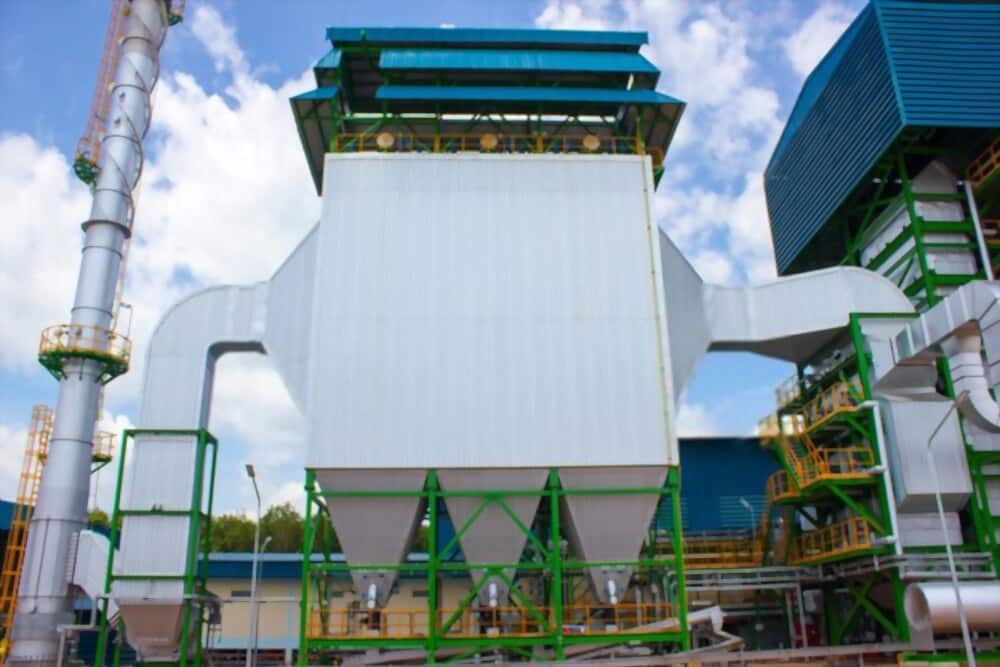
In industrial settings, airborne dust and particles are not only a safety hazard but can also lead to significant non-compliance with regulatory standards. Across various sectors in India, industries face strict regulations concerning air quality, and this is where industrial dust collectors play a crucial role. At Stelco Gears, we understand the dual need for cleaner air and regulatory compliance, offering efficient dust collection solutions designed for Indian industries.
Why Dust Collectors Are Essential for Indian Industries
Industrial processes in sectors like cement, metalworking, textiles, chemicals, and food processing produce significant dust and particulates. In India, unchecked dust emissions can lead to severe consequences, including hefty fines and operational shutdowns, as dictated by environmental regulations under the Air (Prevention and Control of Pollution) Act, 1981 and Central Pollution Control Board (CPCB) guidelines.
Here’s why dust collectors are indispensable:
- Workplace Safety and Health: Prolonged exposure to industrial dust can lead to respiratory diseases and lung infections, posing a threat to worker health. Dust collectors trap harmful particles, ensuring cleaner air and minimizing the risk of conditions such as silicosis, which is a concern in industries like mining and construction.
- Regulatory Compliance: India’s National Ambient Air Quality Standards (NAAQS), revised by the CPCB, set limits on dust and particulate emissions for different industries. Failure to comply with these standards can result in heavy penalties or closure notices. Dust collectors help ensure compliance with Indian air quality standards by capturing pollutants before they can be released into the environment.
- Equipment Longevity: Dust particles can cause significant wear and tear on machinery, reducing operational efficiency and increasing maintenance costs. Dust collectors reduce the amount of dust settling on equipment, extending its lifespan.
- Sustainable Operations: The Indian government emphasizes environmental sustainability and pollution control. By using efficient dust collectors, industries not only comply with regulations but also contribute to broader environmental goals, such as reducing air pollution and minimizing the industry’s carbon footprint.
Types of Industrial Dust Collectors
- Baghouse Dust Collectors: Baghouse collectors use fabric filters to capture fine dust particles. They are ideal for high-volume dust applications in industries like cement manufacturing and foundries, ensuring compliance with stringent dust control norms.
- Cartridge Dust Collectors: These systems use pleated filters to efficiently trap dust. Common in pharmaceutical, food processing, and electronics industries, cartridge dust collectors meet India’s stringent air quality standards, particularly in environments requiring clean, fine particle filtration.
- Cyclone Dust Collectors: Cyclone systems use centrifugal force to separate heavier dust particles. These are particularly effective in sawmills, grain processing, and mining, where larger particulates are common. Cyclones are often paired with other systems to meet Indian air quality regulations.
- Wet Scrubber Systems: Wet scrubbers capture dust and gases using a liquid medium, making them ideal for industries like chemical processing and power generation, where harmful gases and particulates need to be removed. This technology is compliant with Indian environmental regulations for dual particulate and gas filtration.
- Electrostatic Precipitators (ESPs): ESPs use electrical charges to remove fine dust particles and are commonly used in thermal power plants and steel mills. ESPs are crucial for meeting India’s environmental standards, particularly for controlling emissions from industries with high levels of airborne particles.
Indian Regulations Governing Dust and Emissions
India’s industrial emissions are regulated under various laws and guidelines, including:
- Air (Prevention and Control of Pollution) Act, 1981: This law empowers pollution control boards to set standards for emissions and monitor compliance.
- National Ambient Air Quality Standards (NAAQS): Revised by the CPCB, these guidelines outline permissible limits for particulate matter (PM2.5 and PM10) and other pollutants.
- Environmental Impact Assessment (EIA): Industries need to conduct assessments that ensure they are managing pollutants, including dust, effectively.
- Factories Act, 1948: This act mandates that industries maintain safe working conditions, including air quality standards, to protect workers from harmful dust exposure.
Industries that fail to meet these guidelines risk facing fines, operational shutdowns, and damage to their reputation.
Key Benefits of Stelco Gears’ Dust Collectors
- Regulatory Compliance: Our dust collectors are designed to meet the strict dust control standards set by the CPCB and other Indian regulatory bodies.
- Energy Efficiency: With energy-efficient designs, Stelco Gears’ systems help industries reduce their operational costs while staying compliant.
- Durability: Built for the toughest industrial conditions, our dust collectors are durable, reliable, and designed for long-term performance.
- Custom Solutions: Whether you’re in mining, cement production, or food processing, we offer dust collectors tailored to your industry’s specific needs and regulatory requirements.
Conclusion
In India’s regulatory environment, dust collectors are not just an option—they are a necessity. By investing in high-quality dust collection systems, industries can ensure workplace safety, comply with air quality standards, and contribute to environmental sustainability.
At Stelco Gears, we provide robust and efficient dust collection solutions that help Indian industries meet compliance standards while maintaining operational efficiency. Contact us today to learn more about our customized solutions for dust control!